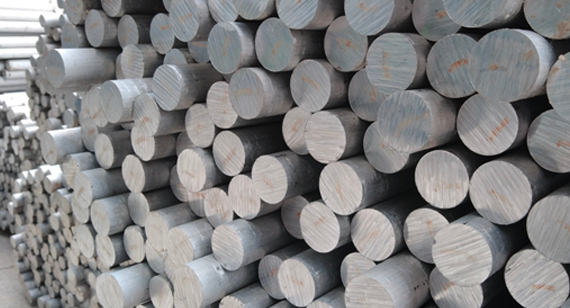15 years one-stop China custom CNC machining parts factory

Hey there I’m VMT Sam!
With 25 years of CNC machining experience we are committed to helping clients overcome 10000 complex part-processing challenges all to contribute to a better life through intelligent manufacturing. Contact us now
 260 |
Published by VMT at Jun 19 2024
260 |
Published by VMT at Jun 19 2024
In the field of CNC machining parts manufacturing, aluminum is widely used due to its light weight and high strength. However, whether aluminum CNC parts rust is a concern for many engineers and manufacturers. This article will explore the reasons behind aluminum CNC parts rusting, methods to prevent it, and comparisons with other materials.
Aluminum CNC parts themselves do not rust because aluminum forms a natural oxide layer known as aluminum oxide (Al2O3). This oxide layer creates a dense protective film on the aluminum surface, preventing further oxidation. This protective film not only prevents rust but also enhances aluminum's corrosion resistance.

While aluminum itself does not easily rust, under certain conditions, aluminum CNC parts may exhibit rust-like phenomena. This is usually due to the following reasons:
How to Prevent Aluminum CNC Parts from Rusting and Maintain Cleanliness Longer?
To keep aluminum CNC parts clean and prevent rusting, the following measures can be taken:
The main causes of corrosion in aluminum CNC parts include:
To prevent corrosion of aluminum CNC parts, the following measures can be taken:
Since aluminum CNC parts themselves do not rust, there will not be actual rust stains. However, if there are stains or discoloration due to damage to the oxide layer, the following methods can be used:
Placing aluminum CNC parts outdoors increases their exposure to environmental pollutants and weather conditions, which may lead to damage to the oxide layer and corrosion. Therefore, it is recommended to store aluminum CNC parts indoors or take appropriate protective measures.
Aluminum CNC parts will not rust if they get wet, but moisture can accelerate oxidation and corrosion. Therefore, keeping aluminum CNC parts dry is essential to prevent corrosion.
Aluminum does not rust because of its surface oxide layer, aluminum oxide (Al2O3). This oxide layer has a dense structure and excellent stability, effectively preventing aluminum from reacting with oxygen and water vapor in the air.
Since aluminum CNC parts themselves do not rust, there is no issue of rust removal. However, if there are stains or discoloration due to damage to the oxide layer, appropriate cleaning and polishing methods can be used.
Since aluminum CNC parts do not rust, a direct comparison of rusting speeds between aluminum and stainless steel is not applicable. However, in terms of corrosion resistance, stainless steel generally has better corrosion resistance and can remain stable for a longer period in harsher environments.
Aluminum and stainless steel each have their advantages and disadvantages, and the choice depends on the usage environment and requirements. Aluminum is lightweight, strong, and has excellent machining properties, while stainless steel offers better corrosion resistance and high-temperature performance. Therefore, when choosing materials, one should consider the usage environment and requirements comprehensively.
Aluminum CNC parts themselves do not rust, as their surface oxide layer effectively prevents aluminum from reacting with oxygen and water vapor in the air. However, under certain conditions, aluminum CNC parts may corrode due to damage to the oxide layer, environmental pollution, or high temperatures. To prevent rust and corrosion, appropriate measures such as regular cleaning, applying protective layers, choosing suitable alloys, avoiding contact with electrolyte solutions, and controlling temperature should be taken. Additionally, storing aluminum CNC parts in dry, ventilated, and dust-free environments is crucial to prevent rust and corrosion.
Comparing aluminum CNC parts with other materials like stainless steel, although stainless steel offers better corrosion resistance and high-temperature performance, aluminum also has unique advantages such as being lightweight, strong, and having excellent machining properties. Therefore, when choosing materials, one should consider the advantages and disadvantages of aluminum and other materials based on the specific usage environment and requirements.
In the field of CNC machining, aluminum CNC parts are widely used due to their unique properties. To meet different customer needs, many CNC machining factories offer custom CNC machining services, producing high-precision and high-quality aluminum CNC parts through techniques like CNC prototyping. These CNC machining services not only meet the individual needs of customers but also improve production efficiency and reduce costs.
Finally, while aluminum CNC parts themselves do not rust, proper maintenance and care are still required during use. Regular cleaning, inspection, and maintenance can ensure that aluminum CNC parts maintain good performance and long service life.
In summary, although aluminum CNC parts do not rust, they may corrode under certain conditions. By taking appropriate measures and maintenance methods, aluminum CNC parts can be effectively prevented from rusting and corroding, maintaining their long-term stable performance and service life. When choosing materials, one should consider the advantages and disadvantages of aluminum and other materials based on the specific usage environment and requirements, selecting the most suitable material.
Ready To Start Your Next Project?
Get Instant Quote

Request a Free Quote
Send us a message if you have any questions or request a quote. We will get back to you ASAP!